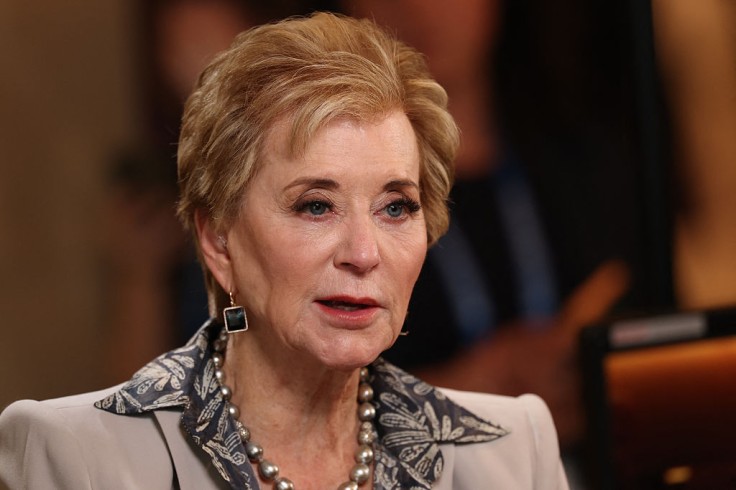McMahon Redirects Education Grants to Literacy, School Choice, and State Autonomy
By
WASHINGTON — U.S. Secretary of Education Linda McMahon announced new supplemental grant priorities on Tuesday, emphasizing evidence-based literacy, expanded school choice, and returning education control to states. The priorities mark a significant shift from the Biden administration's focus on diversity, equity, and inclusion (DEI) initiatives, which McMahon criticized as discriminatory.
"Discretionary grants coming from the Department of Education will now be focused on meaningful learning and expanding choice, not divisive ideologies and unproven strategies," McMahon said in a news release.
The U.S. Department of Education's new priorities target three key areas: evidence-based literacy programs, such as those rooted in phonics; expanding education choice through charter schools, vouchers, or other mechanisms; and empowering states to manage education with minimal federal oversight. These priorities align with the Trump administration's broader education agenda, which has celebrated achievements in school choice and state-led education reforms within its first 100 days, according to The Center Square.
Under the Biden administration, four out of six supplemental grant priorities promoted DEI, including embedding DEI in subjects like civics, STEM, and career education, as well as supporting social-emotional learning and diversity policies. The Department of Education stated these initiatives advanced "a discriminatory diversity, equity, and inclusion (DEI) ideology." McMahon's priorities aim to reverse this approach, focusing instead on academic fundamentals and parental empowerment.
The shift comes amid broader changes in federal education policy, including reduced funding for programs tied to DEI and mental health initiatives. For example, the Department recently halted $1 billion in grants for school mental health professionals, citing conflicts with civil rights law and departmental priorities. Additionally, high-profile actions, such as freezing billions in research grants to Harvard University over alleged noncompliance with federal demands, signal a stricter approach to federal funding.
Education experts have mixed reactions. Supporters argue the focus on literacy and choice addresses declining reading proficiency and parental demand for alternatives. Critics, however, warn that deprioritizing DEI could undermine efforts to address systemic inequities in schools. The debate reflects ongoing tensions over the role of federal versus state authority in education.
McMahon's announcement also follows recent controversies, including her decision to probe universities like UC-Berkeley and Harvard for unreported foreign funding. These actions underscore the Trump administration's push for transparency and alignment with its policy goals.
As the Department of Education implements these priorities, states and school districts will need to adapt to secure federal funding. The focus on phonics-based literacy could lead to a revival of traditional reading instruction, while expanded choice may accelerate the growth of charter schools and voucher programs. The emphasis on state autonomy signals a potential reduction in federal oversight, a long-standing goal of conservative education advocates.
The Department of Education has not yet released specific guidelines for grant applications under the new priorities, but officials say further details will be forthcoming. For now, McMahon's agenda sets a clear direction: prioritize core academics and local control over federal mandates.
© 2026 University Herald, All rights reserved. Do not reproduce without permission.








